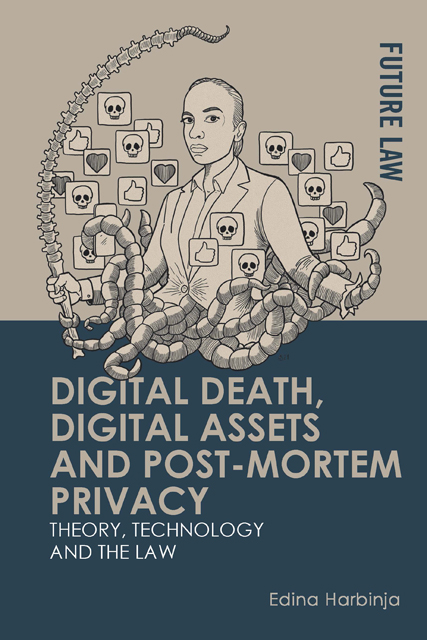Book contents
- Frontmatter
- Contents
- Acknowledgements
- Table of Cases
- Table of Legislation
- 1 Introduction
- 2 Theoretical Underpinnings: Property
- 3 Theoretical Underpinnings: Autonomy, Testamentary Freedom and Post-Mortem Privacy
- 4 Social Networks
- 5 Games, Virtual Worlds and Virtual Realities
- 6 Emails
- 7 Conclusion
- Bibliography
- Index
5 - Games, Virtual Worlds and Virtual Realities
Published online by Cambridge University Press: 25 April 2023
- Frontmatter
- Contents
- Acknowledgements
- Table of Cases
- Table of Legislation
- 1 Introduction
- 2 Theoretical Underpinnings: Property
- 3 Theoretical Underpinnings: Autonomy, Testamentary Freedom and Post-Mortem Privacy
- 4 Social Networks
- 5 Games, Virtual Worlds and Virtual Realities
- 6 Emails
- 7 Conclusion
- Bibliography
- Index
Summary
5.1 Conceptualisation and History of VWs and Games
(a) Definitions and a Brief Historical Account
The concept of virtual worlds (VWs) pre-dates the Internet. The history of VWs began with text-based, offline role-playing games, created based on different works of fiction, such as, for instance, JRR Tolkien’s books and the idea of world-building. The first text-based interactive computer game appeared in 1970, Colossal Cave Adventure, with real-time interactive computer games called multi-user dungeons (MUDs) appearing by the end of the 1970s. These were the first VWs. MUD1 was created by Richard Bartle and Roy Trubshaw in 1979, at Essex University, being the first online network computer game. However, the most famous game in this group (text-based VWs) was LambdaMOO, created by Pavel Curtis in 1990.
The literature analysing social, economic, technological and legal aspects of virtual worlds starts from the late 1990s, concerning the text-based VWs, and continues throughout the 2000s, discussing visually represented
VWs and massively multiplayer online playing games (MMOPGs). The focus of the early literature was mainly on the technical, philosophical and governance issues of MUDs. More substantive legal discussion started at the beginning of the twenty-first century, with seminal works on the legal aspects of VWs, which tackle the following issues: economies and taxation; governance of VWs; property and IP; contracts and consumer protection; and virtual crime.
There is a variety of academic literature discussing death and VWs from anthropological, sociological, psychological, educational and other perspectives, but little, almost nothing, from a legal angle. Literature about VWs and games has been decreasing steadily in the last two decades. However, issues around their legal nature have remained.
Legal aspects of transmission of other digital assets on death (e.g. emails, social network accounts, online banking accounts, photos, domain names) have been explored to an extent following the growing importance of these assets in life and on the death of the users, only sporadically mentioning VW accounts as types of digital assets. This literature has been explored in more detail in other chapters.
This chapter addresses the gap in the literature and sheds light on the post-mortem legal status of different in-game assets (e.g. avatars, weapons, houses, land).
- Type
- Chapter
- Information
- Digital Death, Digital Assets and Post-Mortem PrivacyTheory, Technology and the Law, pp. 120 - 161Publisher: Edinburgh University PressPrint publication year: 2022



